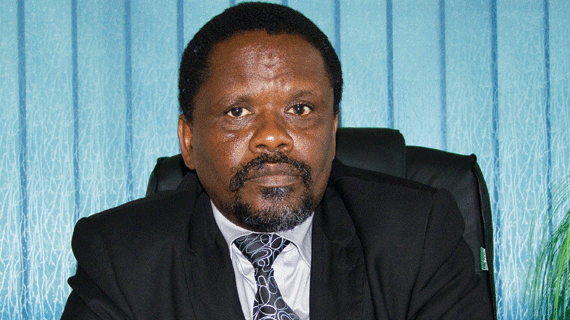
THE United Kingdom Border Agency at Oxford Registry on June 8 2010 defined a marriage of convenience as a union contracted for reasons other than those of a relationship, family, love or commitment to one another.
Instead such a marriage is orchestrated for personal gain or some other sort of strategic purposes , such as political marriage. In cases where such a marriage represents a fraud, it is called a sham marriage.
Metaphorically, the phrase marriage of convenience has been taken to mean any partnership between groups or “individuals otherwise unsuited” to work together.
The Zimbabwe Government of National Unity was a good example. On the other hand, cohabitation refers to a political situation where the president and prime minister come from different political parties.
Homosexuals and lesbians at times form such marriages of convenience. This takes place in a situation where being openly gay is punishable by law. Under this arrangement a homosexual can have a female partner for purposes of camouflaging his homosexual orientation.
Such a female is said to be a homosexual’s beard, while the so-called relationship is called a lavender marriage.
Marriages of convenience have occurred since time immemorial. Good examples are Agnes of Courtenay or that of her daughter Sibylla and that of Jeanne d’Albret to name a few.
Such marriages are referred to as marriages of State. Heqin was a practice in China which involved a Chinese princess marrying an aggressor of China as a means of appeasing the warrior from attacking the princess’ nation.
- Chamisa under fire over US$120K donation
- Mavhunga puts DeMbare into Chibuku quarterfinals
- Pension funds bet on Cabora Bassa oilfields
- Councils defy govt fire tender directive
Keep Reading
Another dimension of marriage of convenience is that of grivusangels, people who marry for financial reasons.
The author of this article intentionally took time to elucidate the origins, purposes and fragility of marriage of convenience in order to put across arguments based on facts.
In particular this article is focusing on the marriage of convenience that was hatched between PF Zapu and Zanu PF in 1987, culminating in the so called Unity Accord. The late Nelson Rolihlahla Madiba Mandela once remarked. “Jailers don’t negotiate with their prisoners.” The Boers were not serious in trying to negotiate South Africa’s independence with him, while he was behind bars.
Situationally, Zapu was behind bars when the Unity Accord was reached. The Late Joshua Nkomo had just returned from Zanu PF inflicted exile, approximately 20 000 innocents had been massacred in Matabeleland and the Midlands. The self invented arms caché had seen a good number of Zipra cadrés incarcerated. Dumiso Dabengwa and Lookout Masuku had been imprisoned in connection with the said arms cachés
The Unity Accord almost split Zapu, as the hardliners viewed the whole project as a sell out business.
It is alleged that the Unity Accord among other things advocated for a rotational presidency, two vice-presidents and the national chairman forming the presidium. The cock was supposed to be removed from the party logo. I stand to be corrected.
Since 1987 the president and one vice-president have always come from Zanu PF, while the other vice-president and the national chairman came from PF Zapu. This incumbency has been practiced and accepted over time.
What has now changed to demand doing things differently. It is not clear whether the other vice-president from Zapu should play second fiddle to the Zanu PF vice-president who has always been first vice-president.
As alluded to earlier on, marriages of convenience are entered into for reasons other than relationship, family or love, but for expediency. At independence Zanu PF lacked credibility and goodwill, hence the need to call for reconciliation, amalgamate the three armies, namely the Rhodesian Army, Zipra and Zanla and this earned Robert Mugabe the honour bestowed and later withdrawn by Buckingham Palace.
However, Zapu remained a thorn in the flesh for Zanu PF, leading to stage managing the dissident menace. The ringfencing of Matabeleland as evidenced by Zapu sweeping all the available twenty (20) seats in Matabeleland was anathema to Zanu PF.
Based on the information hereby disclosed, it is no secret that the Unity Accord was laced with chocolate, when malice and deceit underlay its foundation. Even the late Nkomo in his book; The story of My Life bemoans his trait of over trusting people, only to discover that he had been taken down the garden path.
What comes out clear is that Zanu PF grudgingly embraced the Unity Accord, for it to gain credibility and goodwill. When the late Joseph Msika moved from national chairman to vice-president there were issues.
The same issues arose when the late John Nkomo ascended to the presidium. This time around, the issue is not only about the chairmanship, but the second vice-president as well.
Few voices from Zapu are heard, namely, Sikhanyiso Ndlovu, Jabulani Sibanda, Andrew Langa, Abednico Ncube and Cephas Msipa. Slowly, yet surely Zanu PF has watched the deteriorating Zapu influence and relevance in zimbabwean politics with salivating interest.
People who matter from Zapu are no more. In addition Zapu has failed to bring Matabeleland to the Zanu PF bag. This is the heinous sin that former Zapu members have committed against Zanu PF.
It is, therefore, surprising to see Rugare Gumbo and Mutasa rubbishing equal representation at the presidium. Can Jabulani Sibanda show the same acrobatics that he displayed when campaigning for Zanu PF by making sure equal representation by Zanu PF and Zapu is maintained at presidium?
Moses Tsimukeni Mahlangu is the general-secretary for Zimbabwe Urban Councils Workers’ Union. He is a labour consultant and arbitrator. Feedback: E-mail: [email protected]










